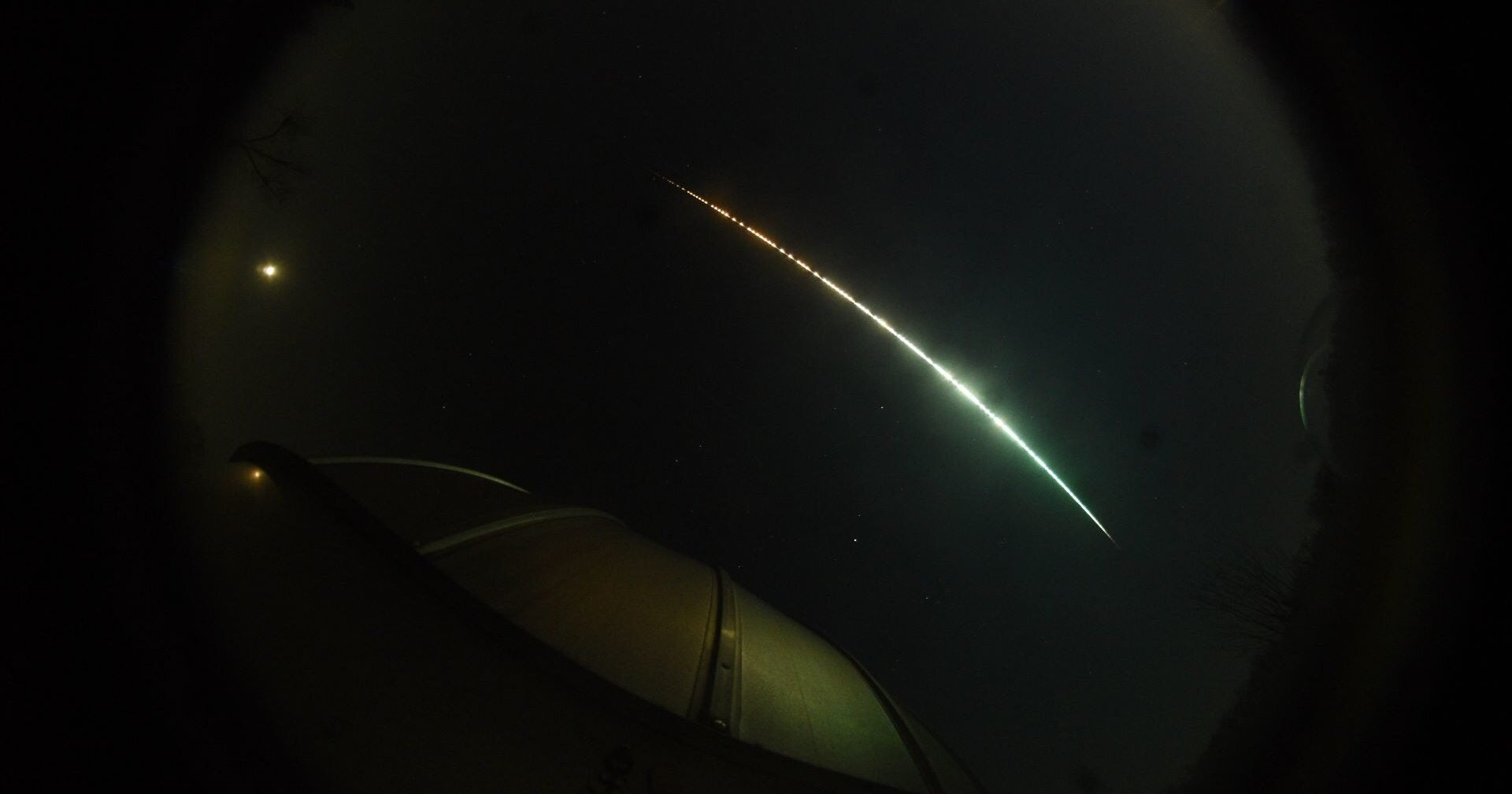Geminid meteor shower peak offers rare chance to see green shooting stars
Geminids are the strongest meteor shower of the year, producing peculiar green-coloured shooting stars

Your support helps us to tell the story
From reproductive rights to climate change to Big Tech, The Independent is on the ground when the story is developing. Whether it's investigating the financials of Elon Musk's pro-Trump PAC or producing our latest documentary, 'The A Word', which shines a light on the American women fighting for reproductive rights, we know how important it is to parse out the facts from the messaging.
At such a critical moment in US history, we need reporters on the ground. Your donation allows us to keep sending journalists to speak to both sides of the story.
The Independent is trusted by Americans across the entire political spectrum. And unlike many other quality news outlets, we choose not to lock Americans out of our reporting and analysis with paywalls. We believe quality journalism should be available to everyone, paid for by those who can afford it.
Your support makes all the difference.The biggest meteor shower of the year will peak on Friday 13 December, offering skygazers a rare chance to see hundreds of green shooting stars.
The annual spectacle will deliver up to one meteor every minute on the night of the 12th going into the morning of the 13th, with meteors continuing to appear on a more sporadic basis until 21 December.
The American Meteor Society describes them as the “strongest meteor shower of the year”, though a bright moon may wash out some of the meteors.
The ‘shooting star’ meteors will emanate from the Gemini constellation, which will be relatively well placed in the sky to avoid the worst impacts of the 92 per cent full Moon.
“The constellation of Gemini is well placed from 10pm onward,” the American Meteor Society noted in a blog post detailing the celestial event.
“The Geminids are often bright and intensely coloured. Due to their medium-slow velocity, persistent trains are not usually seen. These meteors are also seen in the southern hemisphere, but only during the middle of the night and at a reduced rate. In 2024, a nearly full moon will greatly reduce the number of meteors seen. If your skies are clear and transparent, you can still see many bright meteors by facing a direction with the moon at your back.”

Nasa has described the Geminids as “gorgeously green” due to the meteors’ chemical composition. The presence of magnesium and nickel means they produce an unusual shade of green when burning up in the Earth’s atmosphere.
“Most meteors appear to be colorless or white, however the Geminids appear with a greenish hue,” said Bill Cooke, lead for the Meteoroid Environment Office at Nasa’s Marshall Space Flight Center in Huntsville, Alabama. “They’re pretty meteors.”
Geminid Meteor Shower
Key points
- The Geminid meteor shower, originating from an asteroid, peaks on Friday, 13 December
- Despite typically being a vibrant display, this year’s shower will be impacted by a near-full moon, reducing visibility to approximately 60 meteors per hour
- The Geminids are known for their greenish glow
- Viewing opportunities continue until 21 December
- Meteor showers are visible without special equipment
Weather in the UK will not be ideal for the Geminid meteor shower, according to the latest forecast from the Met Office, with clear skies limited to northern parts of Scotland on Thursday evening.
Friday evening will see patchy clouds cover most of the country, offering most people brief moments to see the night sky above.
A less intense meteor shower will take place on 21-22 December, with the Ursids offering a final chance to witness shooting stars in 2024.
Join our commenting forum
Join thought-provoking conversations, follow other Independent readers and see their replies
Comments